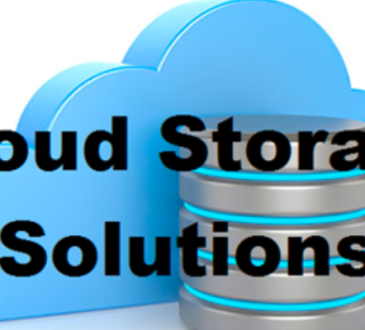
Cloud storage has revolutionized the way we store and manage data. Gone are the days of relying solely on physical hardware to store our important files. Instead, cloud storage offers a convenient and scalable solution for individuals and businesses alike. However, not all cloud storage is created equal. There are various types of cloud storage services available, each tailored to different needs and requirements. In this comprehensive guide, we will explore the many types of cloud storage, their features, benefits, and use cases.
Exploring the Many Types of Cloud Storage
- Public Cloud Storage
Public cloud storage is the most common type of cloud storage and is offered by third-party service providers like Amazon Web Services (AWS), Microsoft Azure, and Google Cloud Platform (GCP). In this model, storage resources are owned and operated by the service provider and made available to customers over the internet. Public cloud storage is highly scalable, cost-effective, and offers a pay-as-you-go pricing model, making it suitable for businesses of all sizes.

- Use Cases: Public cloud storage is ideal for businesses that require flexible and scalable storage solutions, data backup and recovery, and web hosting.
- Private Cloud Storage
Private cloud storage is designed for exclusive use by a single organization. Unlike public cloud storage, private clouds are hosted on the organization’s premises or by a third-party provider. The key advantage of private cloud storage is enhanced security and control, as organizations can customize the infrastructure to meet their specific needs and compliance requirements.
- Use Cases: Private cloud storage is suitable for industries with strict data privacy and security regulations, such as healthcare, finance, and government.
- Hybrid Cloud Storage
Hybrid cloud storage combines elements of both public and private clouds to create a unified storage environment. Organizations can choose where to store their data based on factors like security, cost, and performance. Hybrid cloud storage allows for seamless data migration and offers flexibility in managing data across different environments.
- Use Cases: Businesses with fluctuating workloads, data migration needs, and a mix of sensitive and non-sensitive data can benefit from hybrid cloud storage.
- Multi-Cloud Storage
Multi-cloud storage involves using multiple cloud storage providers simultaneously. This approach helps organizations avoid vendor lock-in and optimize costs by leveraging the strengths of various cloud providers. Data is distributed across different cloud platforms, providing redundancy and reducing the risk of data loss.

- Use Cases: Organizations seeking to avoid dependency on a single provider, improve reliability, and achieve cost optimization often opt for multi-cloud storage.
- Object Storage
Object storage is a type of cloud storage that stores data as objects rather than traditional file hierarchies. Each object consists of data, metadata, and a unique identifier, making it suitable for storing unstructured data like images, videos, and backups. Object storage is highly scalable and designed for durability and availability.
- Use Cases: Object storage is ideal for media and entertainment companies, data archiving, and content delivery services.
- File Storage
File storage in the cloud allows users to store and manage files in a hierarchical structure, similar to traditional file systems. It is well-suited for sharing and collaborating on documents and files. Users can access their files from anywhere with an internet connection.
- Use Cases: Businesses and individuals looking for a cloud-based alternative to traditional file servers and shared network drives often use file storage solutions.
- Block Storage
Block storage divides data into fixed-sized blocks and is commonly used in virtualization and database management. It offers high-performance storage and is suitable for applications that require direct control over data storage and retrieval.
- Use Cases: Block storage is essential for virtual machines, databases, and applications with high I/O requirements.
- Cold Storage
Cold storage, also known as archival storage, is designed for long-term data retention at a lower cost compared to other storage types. It is ideal for storing data that is infrequently accessed but needs to be retained for compliance or historical purposes.
- Use Cases: Compliance records, historical data, and backup archives are examples of data that can benefit from cold storage.
- Cloud-Native Storage
Cloud-native storage solutions are specifically designed for containerized applications in cloud environments. They are optimized for dynamic scaling and container orchestration platforms like Kubernetes. Cloud-native storage ensures that data is available and resilient in containerized environments.
- Use Cases: Organizations adopting containerization and microservices architectures can leverage cloud-native storage for their applications.
- Personal Cloud Storage
Personal cloud storage services are designed for individual users to store and sync their personal files and data across devices. Popular examples include Dropbox, Google Drive, and Apple iCloud. These services offer user-friendly interfaces and are often used for personal documents, photos, and music.

- Use Cases: Individuals looking for an easy way to back up and access their personal files from multiple devices use personal cloud storage solutions.
Conclusion
Cloud storage has transformed the way we store, manage, and access data. The variety of cloud storage types available ensures that there is a solution to meet the needs of individuals, businesses, and organizations across various industries. Whether you require the scalability of public cloud storage, the security of private cloud storage, or the flexibility of hybrid and multi-cloud storage, there is a cloud storage solution tailored to your specific requirements. Understanding the different types of cloud storage is essential for making informed decisions about data management and storage strategies in today’s digital age.



